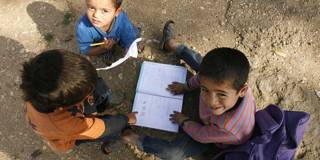With the Middle East seemingly being sucked deeper into a vortex of permanent conflict, it is easy to believe that dictators and religious bigots will rule it forever. But the vast majority of people in the region want legitimate states that uphold the rule of law, protect civic rights, and promote coexistence among communities.
BEIRUT – In Lebanon today, all the symptoms of the Middle East’s current turmoil are visible. Newly arrived refugees from Syria and Iraq are joining Palestinian refugees who have long been here. The country hasn’t had a president for two years, as rival political factions, reflecting the rising enmity between their Iranian and Saudi Arabian backers, are weakening domestic governance. Political corruption runs rampant. The garbage doesn’t always get picked up.

BEIRUT – In Lebanon today, all the symptoms of the Middle East’s current turmoil are visible. Newly arrived refugees from Syria and Iraq are joining Palestinian refugees who have long been here. The country hasn’t had a president for two years, as rival political factions, reflecting the rising enmity between their Iranian and Saudi Arabian backers, are weakening domestic governance. Political corruption runs rampant. The garbage doesn’t always get picked up.